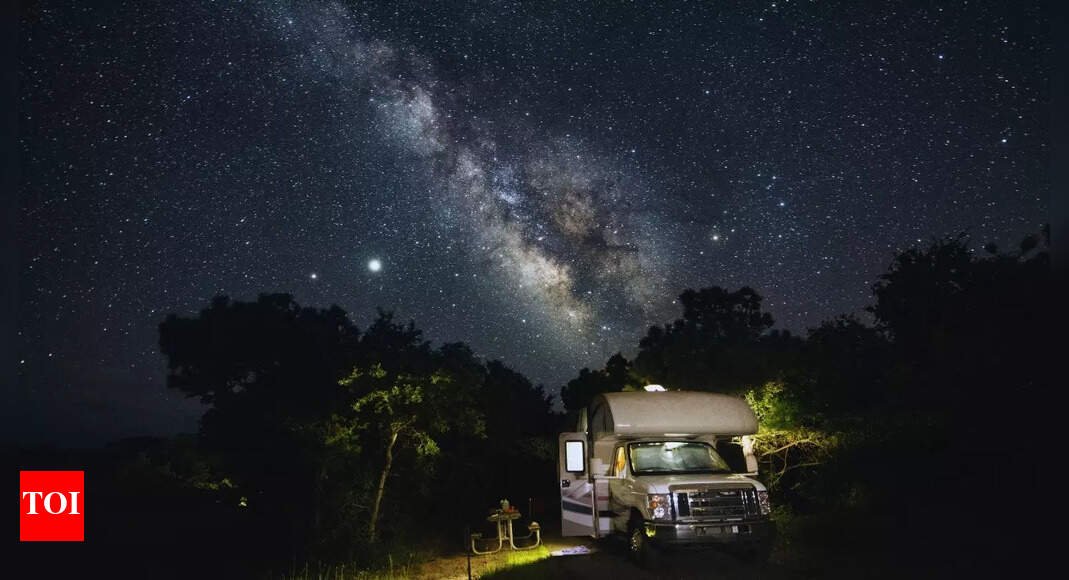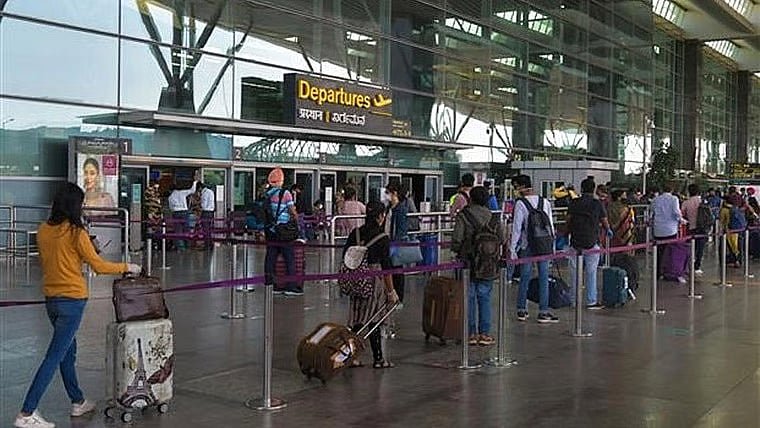Travel Guides & Articles
Trump announces travel ban and restrictions on 19 countries

WASHINGTON (AP) — President Donald Trump on Wednesday resurrected a hallmark policy of his first term, announcing that citizens of 12 countries would be banned from visiting the United States and those from seven others would face restrictions.
The ban takes effect Monday at 12:01 a.m., a cushion that may avoid the chaos that unfolded at airports nationwide when a similar measure took effect with virtually no notice in 2017. Trump, who signaled plans for a new ban upon taking office in January, appears to be on firmer ground this time after the Supreme Court sided with him.
Some, but not all, 12 countries also appeared on the list of banned countries in Trump’s first term. The new ban includes Afghanistan, Myanmar, Chad, the Republic of Congo, Equatorial Guinea, Eritrea, Haiti, Iran, Libya, Somalia, Sudan and Yemen.
There will be heightened restrictions on visitors from Burundi, Cuba, Laos, Sierra Leone, Togo, Turkmenistan and Venezuela.
In a video released on social media, Trump tied the new ban to Sunday’s terror attack in Boulder, Colorado, saying it underscored the dangers posed by some visitors who overstay visas. The suspect in the attack is from Egypt, a country that is not on Trump’s restricted list. The Department of Homeland Security says he overstayed a tourist visa.
Trump said some countries had “deficient” screening and vetting or have historically refused to take back their own citizens. His findings rely extensively on an annual Homeland Security report of visa overstays of tourists, business visitors and students who arrive by air and sea, singling out countries with high percentages of remaining after their visas expired.
“We don’t want them,” Trump said.
The inclusion of Afghanistan angered some supporters who have worked to resettle its people. The ban makes exceptions for Afghans on Special Immigrant Visas, generally people who worked most closely with the U.S. government during the two-decade-long war there.
Afghanistan was also one of the largest sources of resettled refugees, with about 14,000 arrivals in a 12-month period through September 2024. Trump suspended refugee resettlement his first day in office.
“To include Afghanistan — a nation whose people stood alongside American service members for 20 years — is a moral disgrace. It spits in the face of our allies, our veterans, and every value we claim to uphold,” said Shawn VanDiver, president and board chairman of #AfghanEvac.
Trump wrote that Afghanistan “lacks a competent or cooperative central authority for issuing passports or civil documents and it does not have appropriate screening and vetting measures.” He also cited its visa overstay rates.
Haiti, which avoided the travel ban during Trump’s first term, was also included for high overstay rates and large numbers who came to the U.S. illegally. Haitians continue to flee poverty, hunger and political instability deepens while police and a U.N.-backed mission fight a surge in gang violence, with armed men controlling at least 85% of its capital, Port-au-Prince.
“Haiti lacks a central authority with sufficient availability and dissemination of law enforcement information necessary to ensure its nationals do not undermine the national security of the United States,” Trump wrote.
The Iranian government government offered no immediate reaction to being included. The Trump administration called it a “state sponsor of terrorism,” barring visitors except for those already holding visas or coming into the U.S. on special visas America issues for minorities facing persecution.
Other Mideast nations on the list — Libya, Sudan and Yemen — all face ongoing civil strife and territory overseen by opposing factions. Sudan has an active war, while Yemen’s war is largely stalemated and Libyan forces remain armed.
International aid groups and refugee resettlement organizations roundly condemned the new ban. “This policy is not about national security — it is about sowing division and vilifying communities that are seeking safety and opportunity in the United States,” said Abby Maxman, president of Oxfam America.
The travel ban results from a Jan. 20 executive order Trump issued requiring the departments of State and Homeland Security and the Director of National Intelligence to compile a report on “hostile attitudes” toward the U.S. and whether entry from certain countries represented a national security risk.
During his first term, Trump issued an executive order in January 2017 banning travel to the U.S. by citizens of seven predominantly Muslim countries — Iraq, Syria, Iran, Sudan, Libya, Somalia and Yemen.
It was one of the most chaotic and confusing moments of his young presidency. Travelers from those nations were either barred from getting on their flights to the U.S. or detained at U.S. airports after they landed. They included students and faculty as well as businesspeople, tourists and people visiting friends and family.
The order, often referred to as the “Muslim ban” or the “travel ban,” was retooled amid legal challenges, until a version was upheld by the Supreme Court in 2018.
The ban affected various categories of travelers and immigrants from Iran, Somalia, Yemen, Syria and Libya, plus North Koreans and some Venezuelan government officials and their families.
Trump and others have defended the initial ban on national security grounds, arguing it was aimed at protecting the country and not founded on anti-Muslim bias. However, the president had called for an explicit ban on Muslims during his first campaign for the White House.
___
Follow the AP’s coverage of President Donald Trump at https://apnews.com/hub/donald-trump.
___
Amiri reported from the United Nations. Associated Press writers Rebecca Santana, Jon Gambrell, Ellen Knickmeyer and Danica Coto contributed to this report.
Travel Guides & Articles
Beyond wildlife: India’s best nature trips to plan before 2025 ends |

The wildlife season is just around the corner, and we are excited about that. But this time, we are not here for that. For nature lovers, India’s diverse landscapes do not disappoint. Here we are looking at experiences beyond wildlife safaris, from lush valleys to serene backwaters. The winter months will provide perfect weather for exploring the outdoors. Here are eight exceptional nature trips across India to plan before the year ends.
Mawlynnong, Meghalaya
From Shillong Airport, Mawlynnong is located just 90 km. Also known as Asia’s cleanest village, Mawlynnong’s forests, waterfalls, and living root bridges are some of the best things you will experience in Northeast India. Not to forget, winter is the time when Dawki River (located just 30 km from Mawlynnong) is at it’s best form. Crystal clear water of Dawki River will leave you mesmerised. When in Mawlynnong, stay in village guesthouses. They are budget-friendly, and will let you have authentic traditional stay experience.
Dandeli, Karnataka
Located just 125 km from Goa Airport, Dandeli is nestled in the Western Ghats’ foothills. Its dense forests and Kali River offer adventure and serenity. Its flat terrain and riverine landscape are photogenic, perfect for the ‘gram.’ If you can, take out time to go rafting on the Kali River, or trek to Kavala Caves.Bhitarkanika National Park, OdishaLocated just 150 km from Bhubaneswar Airport, this mangrove ecosystem and wetland, spans 672 sq km. It offers serene boat rides through creeks and sightings of crocodiles and migratory birds. Bhitarkanika is a beautiful mix of wildlife and offbeat travel. Cruise through mangroves, spot estuarine crocodiles, or visit the Olive Ridley turtle nesting site at Gahirmatha.Gokarna, KarnatakaGokarna is located approximately 150 km from Goa Airport. It’s a quieter alternative to Goa. Gokarna’s pristine beaches and coastal cliffs offer a laid-back nature escape, far from the hustle and bustle of an over-crowded (and expensive) tourist trap. Here’s what to do in Gokarna: Relax on Om Beach, trek to Kudle Beach, or visit Half Moon Beach for solitude. The Mahabaleshwar Temple is a beautiful addition to your serene coastal holiday.
Travel Guides & Articles
Top 6 Places To Spot Black Panthers In India – Travel and Leisure Asia

Top 6 Places To Spot Black Panthers In India Travel and Leisure Asia
Source link
Travel Guides & Articles
Travel Drops 8% In June 2025

New Delhi: For the first time since 2001, excluding the Covid-19 years, the number of Indians visiting the United States has fallen as 2.1 lakh Indians travelled there in June 2025, which is an 8 per cent drop compared to 2.3 lakh in the same month last year, according to the US Commerce Department’s National Travel and Tourism Office (NTTO).
The downward trend seems to be continuing in July as well, with provisional data showing a 5.5 per cent decline compared to July 2024.
This slowdown is part of a broader global trend. NTTO data shows that overall international arrivals to the US also fell, with a 6.2 per cent drop in June, 7 per cent in May, 8 per cent in March, and 1.9 per cent in February.
Only January and April saw increases of 4.7 per cent and 1.3 per cent, respectively.
India continues to be the fourth largest source of international visitors to the US. Since Canada and Mexico share land borders with America, India ranks as the second largest overseas market after the UK, followed by Brazil in fifth place.
Together, these five countries contributed nearly 60 per cent of all international arrivals to the US in June.
Traditionally, Indian travellers to the US include students, business professionals, and those visiting friends and relatives.
Leisure travel to America has always been less popular compared to destinations like Southeast Asia, the Middle East, and Europe.
The current slowdown is being seen most clearly among students, though experts believe that business and family visits could also be affected if visa delays and constraints continue.
The Indian diaspora in the US is strong, with over 50 lakh people, which has generally ensured a steady flow of travel.
In fact, NTTO data shows that every June since 2001 had recorded higher numbers than the year before — until now.
April this year had been a positive month for Indian travellers overall, with 29 lakh people flying abroad.
The UAE was the top destination, followed by Saudi Arabia, Thailand, Singapore, and the US.
(Except for the headline, this article has not been edited by FPJ’s editorial team and is auto-generated from an agency feed.)
-
Tools & Platforms3 weeks ago
Building Trust in Military AI Starts with Opening the Black Box – War on the Rocks
-

 Business2 days ago
Business2 days agoThe Guardian view on Trump and the Fed: independence is no substitute for accountability | Editorial
-

 Ethics & Policy1 month ago
Ethics & Policy1 month agoSDAIA Supports Saudi Arabia’s Leadership in Shaping Global AI Ethics, Policy, and Research – وكالة الأنباء السعودية
-

 Events & Conferences3 months ago
Events & Conferences3 months agoJourney to 1000 models: Scaling Instagram’s recommendation system
-

 Jobs & Careers2 months ago
Jobs & Careers2 months agoMumbai-based Perplexity Alternative Has 60k+ Users Without Funding
-

 Funding & Business2 months ago
Funding & Business2 months agoKayak and Expedia race to build AI travel agents that turn social posts into itineraries
-

 Education2 months ago
Education2 months agoVEX Robotics launches AI-powered classroom robotics system
-

 Podcasts & Talks2 months ago
Podcasts & Talks2 months agoHappy 4th of July! 🎆 Made with Veo 3 in Gemini
-

 Podcasts & Talks2 months ago
Podcasts & Talks2 months agoOpenAI 🤝 @teamganassi
-

 Mergers & Acquisitions2 months ago
Mergers & Acquisitions2 months agoDonald Trump suggests US government review subsidies to Elon Musk’s companies





















